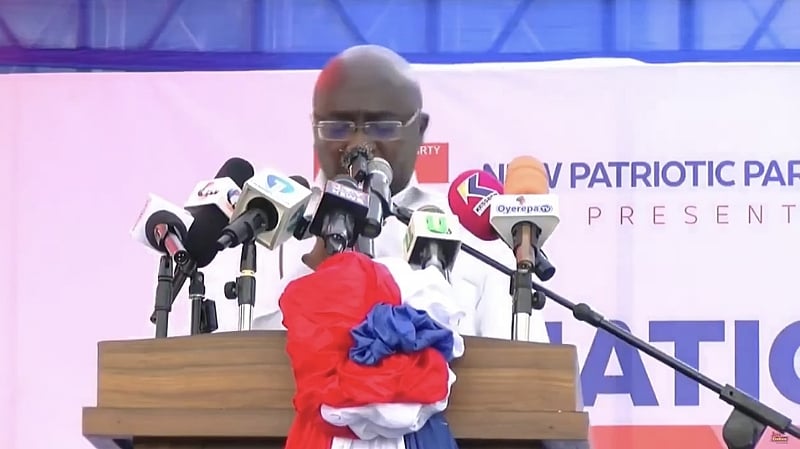The New Patriotic Party (NPP) suffered a significant defeat in the 2024 Ghanaian elections, losing to the National Democratic Congress (NDC) by a substantial margin of over 1.7 million votes. Their parliamentary representation also plummeted, dropping from 137 seats to a mere 88, handing the NDC a near two-thirds majority. Former Vice President and NPP flagbearer, Dr. Mahamudu Bawumia, attributed this loss primarily to internal factors, specifically the failure of a substantial portion of their support base to turn out on election day. He pointed to the stark statistic of 2.1 million NPP supporters abstaining from voting, a figure he believes fundamentally determined the outcome of the election.
Dr. Bawumia’s analysis highlighted a critical disconnect between the party and its grassroots. While the NPP campaigned vigorously, their efforts were ultimately undermined by the significant drop in voter turnout within their own ranks. This internal failure, according to Bawumia, overshadowed any external factors that may have contributed to the defeat. He contrasted the NPP’s decline with the relatively modest increase in votes for NDC flagbearer, John Mahama, who gained only slightly over one hundred thousand votes compared to the previous election. This stark comparison underscored the magnitude of the NPP’s self-inflicted wound. It wasn’t so much that the opposition gained substantial ground, but rather that the NPP lost a significant portion of its own support.
The implications of this internal failure are profound. The loss of 2.1 million votes essentially handed the election to the NDC, demonstrating the crucial importance of voter mobilization and engagement. The NPP’s inability to activate its base revealed a critical weakness in its organizational structure and its connection to the electorate. This points to a potentially deeper issue within the party, suggesting a need for introspection and reform to address the underlying reasons for this voter apathy. The reasons behind this mass abstention require further investigation: Was it disillusionment with the party’s performance? Were there logistical issues preventing voters from reaching the polls? Or was it a combination of factors that eroded the party’s connection with its core supporters?
Dr. Bawumia, however, expressed optimism about the party’s future, emphasizing the potential for recovery if the NPP can effectively re-engage its grassroots and address the issues that led to the low voter turnout. He firmly believes that the key to future victory lies within the party itself. By focusing on rebuilding internal strength and reconnecting with its base, he argued, the NPP can regain the lost ground and once again become a competitive force in Ghanaian politics. This entails a significant undertaking, requiring the party to examine its strategies, messaging, and organizational structure to identify and address the root causes of the 2.1 million missing votes.
The task ahead for the NPP is multifaceted. It necessitates a thorough post-mortem analysis of the 2024 election, going beyond surface-level explanations and delving into the underlying reasons for the voter apathy. This includes understanding the specific demographics of the abstaining voters, their motivations, and their concerns. The party must then develop targeted strategies to address these issues and rebuild trust with its base. This might involve engaging in more direct outreach, listening to the concerns of constituents, and demonstrating a renewed commitment to their needs.
Ultimately, the NPP’s path to recovery hinges on its ability to learn from the mistakes of the 2024 election. Re-engaging the 2.1 million missing voters requires more than just rhetoric; it demands concrete action, demonstrable change, and a genuine commitment to addressing the concerns of its base. The party must demonstrate that it understands the reasons for the disillusionment and is actively working to rectify the situation. Only through such dedicated efforts can the NPP hope to regain the trust of its supporters and reclaim its position as a viable contender for power in future elections.














